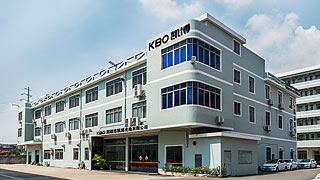Samsung Electronics and Hyundai Motor Company cooperated for the first time on car chips for in vehicle infotainment systems
Samsung Electronics will supply Hyundai Motor Company with the latest car "brain" chip Exynos Auto V920 to drive the next generation of Hyundai Motor Company's on-board infotainment system. With the two Korean enterprises reaching an automobile chip cooperation agreement, the further cooperation between the two sides in the automobile market in the future is more and more concerned, and the scope of cooperation is expected to expand to the fields of Solid-state battery and automatic driving.
Samsung Electronics and Hyundai Motor Company cooperated for the first time on automobile chips. On June 7, Samsung Electronics announced that it would supply Hyundai Motor Company with the latest car "brain" chip Exynos Auto V920 to drive Hyundai Motor Company's next generation in vehicle infotainment (IVI) system, which will be launched in 2025. The Exynos Auto V920 application processor chip can process real-time driving information of vehicles, providing high-definition video and gaming experience in the car. The Exynos Auto V920 is the third generation automotive processor used by Samsung Electronics for advanced in car infotainment systems, featuring a 10 core CPU design. Its central processing unit (CPU), graphics processing unit (GPU), and neural processing unit (NPU) performance have all been significantly upgraded. The CPU performance of the Exynos Auto V920 is 1.7 times that of the previous generation, and the NPU performance for high-speed processing of artificial intelligence operations is 2.7 times that of the previous generation, supporting better monitoring of driver status and rapid assessment of the surrounding environment. The improved chip performance enhances the visual presentation of the display and optimizes the interaction between the driver and the interior information. With the LPDDR5 memory speed, the Exynos Auto V920 can effectively manage 6 high-resolution displays for instrument panel, infotainment, and rear seat entertainment systems, as well as 12 camera sensors for capturing critical visual information.
Samsung Electronics is entering the market of high specification vehicle system semiconductors, and plans to consolidate its market position by supplying Hyundai Motor Company with automotive chips. This cooperation is also expected to help Hyundai Motor Company diversify its auto chip supply chain.
According to South Korean media Business Korea, with Samsung Electronics and Hyundai Motor Company Automobile officially reaching an agreement on car chip cooperation, the further cooperation between the two Korean companies in the automotive market in the future has attracted more and more attention. The scope of cooperation between Samsung Electronics and Hyundai Motor Company is expected to expand to the fields of Solid-state battery and automatic driving. The Solid-state battery has larger capacity and is safer than the existing lithium-ion battery. Samsung SDI, the power battery company, plans to establish a Solid-state battery mass production system by 2027, and Hyundai Motor Company also plans to pilot produce electric vehicles equipped with Solid-state battery in 2025 and start mass production in 2030. Lee Jae-yong, president of Samsung Electronics, met with Chung Eui-sun, president of Hyundai Motor Group twice in May and July 2020 to discuss the research status of Solid-state battery. In addition, Samsung Electronics Semiconductor Manufacturing Co., Ltd. produces autopilot chips for Tesla, and Hyundai Motor Company Motor Co., Ltd. is also increasing its investment in autopilot. In 2020, Motional, an autopilot joint venture, will be established in the United States.




